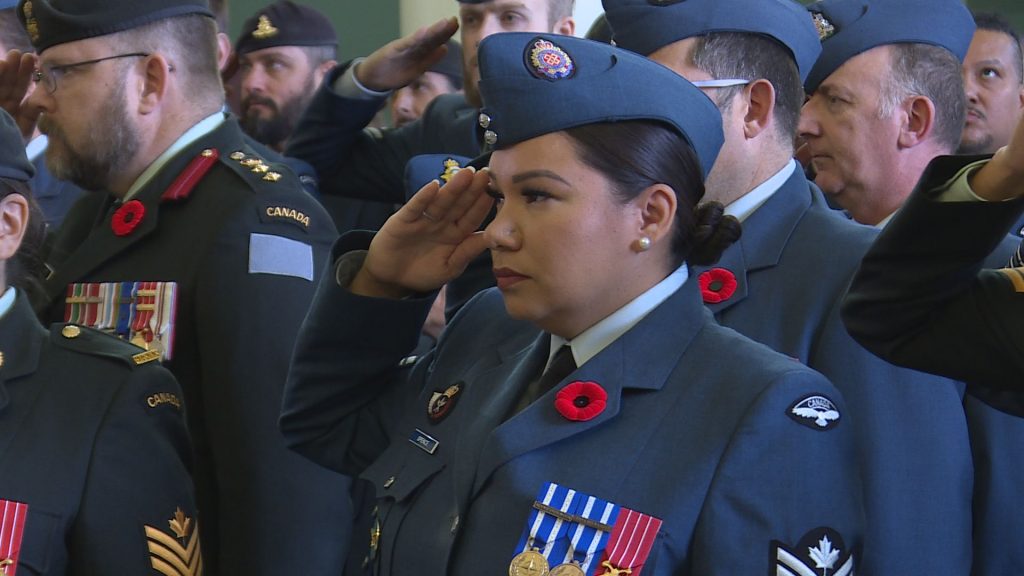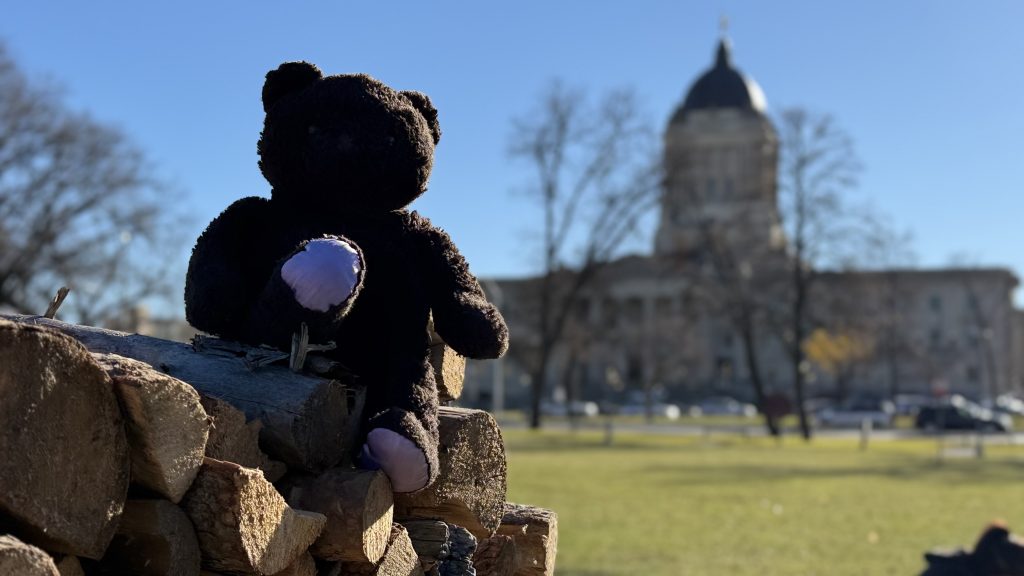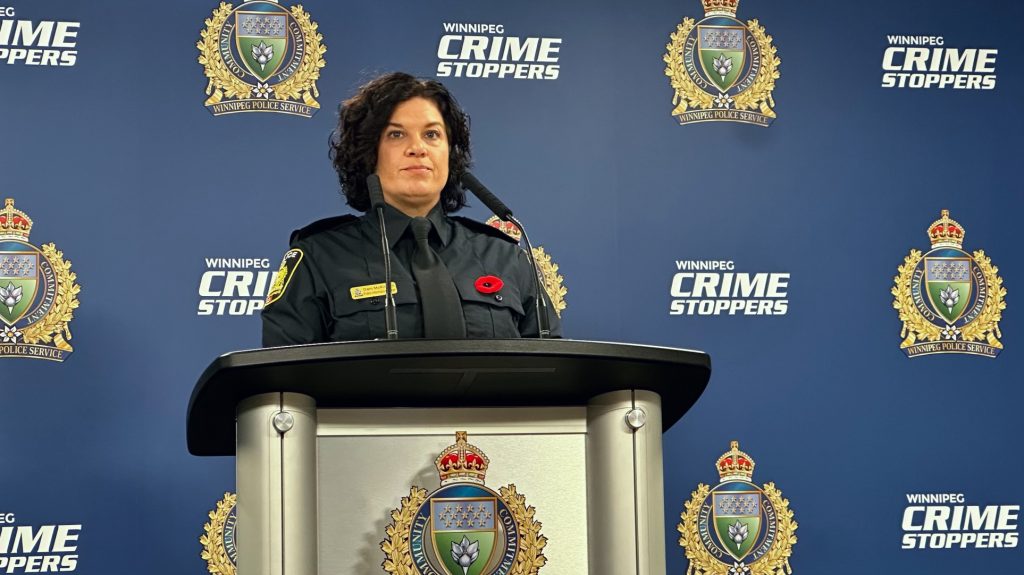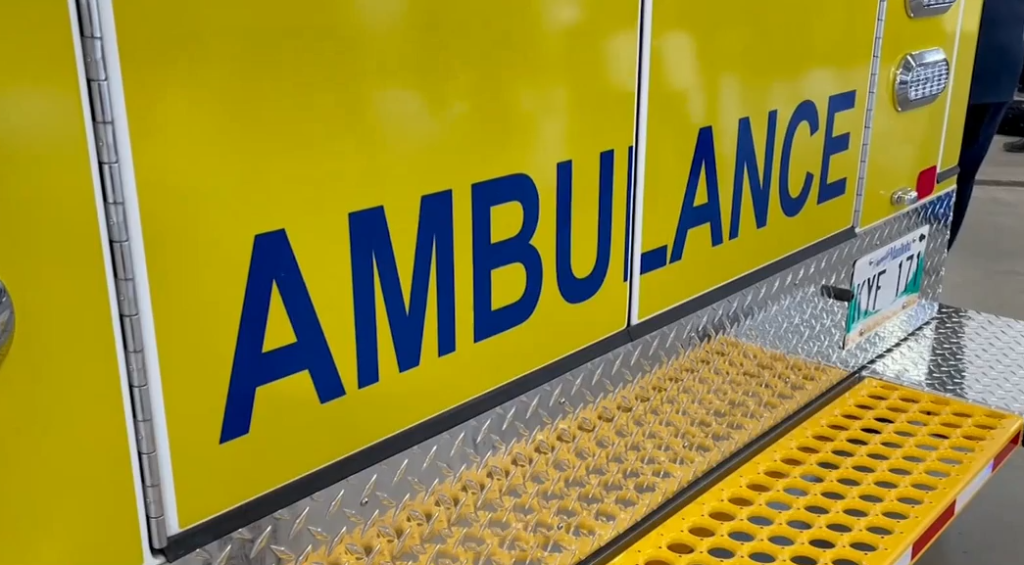Women’s Health Clinic to incorporate traditional Indigenous teachings
Posted September 29, 2023 4:31 pm.
Last Updated September 30, 2023 8:59 am.
The Women’s Health Clinic (WHC) announced a new initiative designed to decolonize healthcare practices and incorporate traditional Indigenous teachings on Friday.
The initiative — Ka ta pway yoot — will see one Kookum spending time at each WHC facility, sharing knowledge and experiences.
“We are so very lucky and excited that these wonderful and gifted Knowledge Keepers have agreed to spend time with us at WHC,” says WHC Elder Wa Wa Tei Ikwe. “This will be transformative for all of us including the relatives we already know and those we do not yet know – it is also a great opportunity for our Kookums to become part of a larger network where the sharing of their gifts can be spread even further.”
Kookums were introduced to WHC staff earlier in the year and hosted Storytime Circles, where they shared cultural teachings, wisdom, and knowledge with WHC staff.
“WHC is a non-Indigenous organization actioning Truth and Reconciliation recommendations and integrating various traditional Indigenous models of care, into our Wholistic health care practices,” says Kemlin Nembhard, WHC Executive Director. “We are excited for what this means for our clinic, as well as other settler health care organizations who are already inspired by our current actions.”
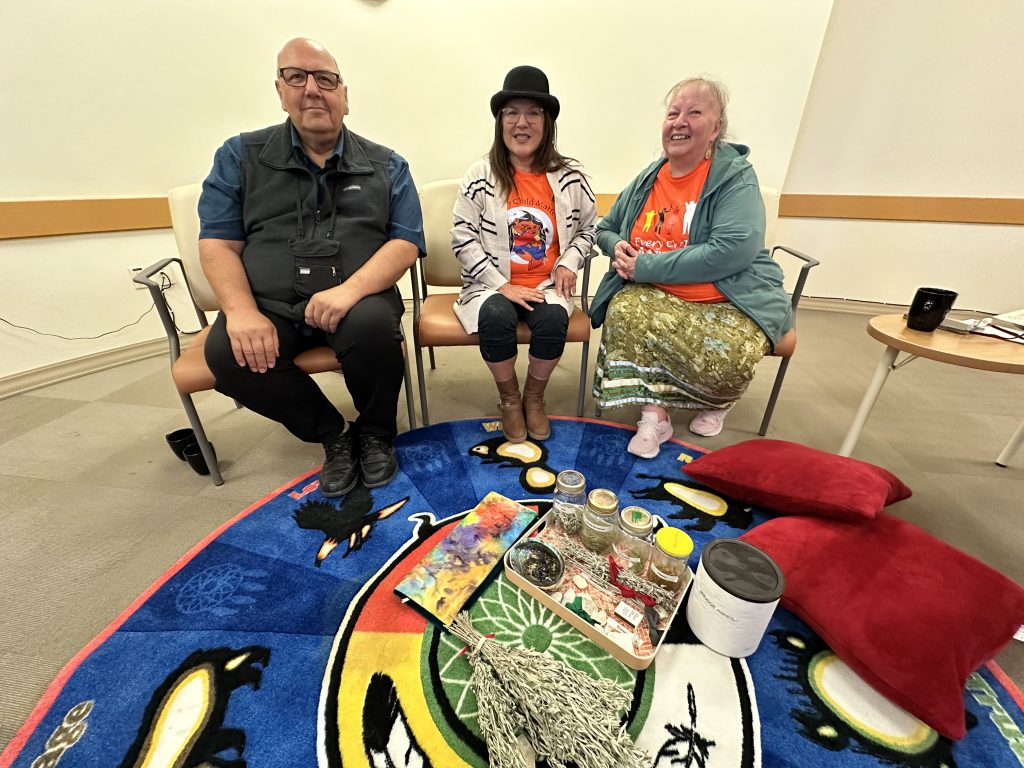
(Left to Right)
Mashkode Giizhik, also known as Albert McLeod, Zhaawanong Binesi Ikwe, also known as Jeannie White Bird, and Wa Wa Tei Ikwe, also known as Louise McKay. (Photo Credit: Joanne Roberts, CityNews)
Who are the Kookums?
WHC says the four Kookums are Albert McLeod, Jeannie White Bird, Margaret Lavallee, and Louise McKay.
Albert McLeod — Mashkode Giizhik — is a status Indian with ancestry from Nisichawayasihk Cree Nation and the Metis communities of Cross Lake and Norway House.
WHC says McLeod has been a human rights activist for over 30 years and was one of the founders of the 2-Spirited People of Manitoba. In addition, he was the director of the Manitoba Aboriginal AIDS Task Force from 1991 to 2001.
“Traditionally with Indigenous people they had multiple gender identities and roles so for the Women’s Health Clinic to recognize that and include me in the Kookum’s Circle is, I think, very important,” said McLeod.
“As Indigenous people we survived that so now it is a time where we can pick up the knowledge from our ancestors and the tools they left us for this time.”
Jeannie White Bird — Zhaawanong Binesi Ikwe — is a member of Rolling River First Nation.
WHC says at age nine, she was forcibly removed from her family and community due to erroneous federal/provincial policies that became known as the Sixties Scoop. Due to this, she lost her language and denied her culture and heritage.
“I tried all the other, I tried the mainstream. And those doors just were resistant and things. The process just wasn’t right for me,” she explained.
“So when all those doors basically were shut, it just occurred to me right then and there that traditional healing was where I needed to go. And that was ground zero for where I’m at today.”
Following that, she began sharing her truth at the National Inquiry into the MMIWG and intertwined those elements with breathtaking beauty expressed in imagery and stories through mural art.
“It’s because there’s listening from and they’re being guided by Indigenous ways of knowing. They’re taking that time to step back and be quiet and listen and to have space to create that genuine, authentic space for the Indigenous voices.”
Louise McKay — Wa Wa Tei Ikwe — is a Traditional Elder and is a descendant of the historic Metis of the Red River Settlement in Manitoba.
WHC says In 1987 McKay graduated from the University of Winnipeg with a double Major in Psychology & Justice and Law. Since then, she has worked in child welfare, justice and law, education, health, women’s issues, addictions, spiritual care and with children and communities in crisis.
Margaret Lavallee is an Anishinaabe Ikwe from Sagkeeng First Nation.
WHC says She has been an Elder in Residence for the last 17 years at the University of Manitoba Ongomiizwin Education Indigenous Institute of Health and Healing at Rady Faculty of Health Sciences.
Over 40 years, she has held various Human Relations responsibilities within health care.
